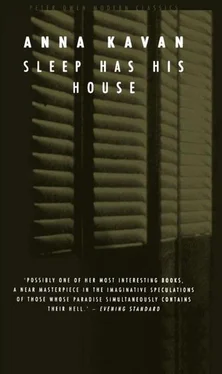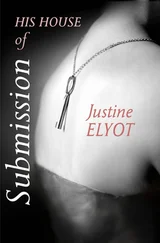the Blessed Genii who walk above in the light, gazing with blissful eyes of still, eternal clearness
The perennially clear eye of the Heaven-Born opens to a stare of shockingly bright moonlight. The eye is located at presumptive God height so that the terrestrial globe is seen as if from an airplane cruising over it at about three thousand feet.
A cold, steady review of night, moonlight, vastness, emptiness, loneliness, desolation, by the celestial eye. The bleak and enormous reaches of its vision swoop occasionally to focus detail at close range but never linger on anything. The eye is checking a record of silence, space; a nightmare, every horror of this world in its frigid and blank neutrality. The actual scope of its orbit depends on the individual concept of desolation, but approximate symbols are suggested in long roving perspectives of ocean, black swelled, in slow undulation, each whaleback swell plated in armour-hard brilliance with the moonlight clanking along it; the endless, aimless, nameless shoreline, flat, bald-white sand, unbroken black-tree palisade; the heavy and horrid eternal onrush of breakers sullenly exploding their madness of futile power, millions of mad tons piling, booming, collapsing, swirling in chain-mail mosaic of mad moon splinters; blanched mountain range a ridge of clenched knucklebones.
The eye sinks slowly to travel at tree height past clattering black slats of palm leaves knife-edged on steel;
and looks at a hideous fanged stone idol in front of which lies a hyena, gnawing away at a lump of half-rotted flesh; dips lower to inspect three strung human skulls dully ululating in wind; rises again to medium altitude and directs its impassive scrutiny towards death-white ice-caps; towards hopeless vastness of dreary continents crawling with pestilential rivers, scabbed with plains in the comers of which perpetual dust-storms are festering; towards blasted battlefields and ruined cities running with seared putrescence; over dead village roofs and poisoned gardens, broken walls bitter in snow or moon, blank windows black with nothing.
And so on, in regular and perfectly unflinching survey
which non-dimensional B from deep within its pupil coincidently shares
until a fresh manifestation gathers itself together, and focuses interest on:
the castle the sun
The sun is, in fact, just on the point of rising over the town. This is the precise moment when Day and Night are balanced before exchanging their spheres of influence. Low in the left segment of sky the full moon still shines white on steep gables and eaves, and glazes window panes behind which people are still fast asleep in their beds.
People are in bed too in the houses at the opposite end of the town where a faint preliminary pink is spreading fanwise out of the east. But it’s noticeable that the sleepers here are restlessly stirring, already beginning to break away from their dreams. The moon retires with graceful prudence, her blue train trailing behind, switching slickly over the horizon before the roguish rosy-fingered retinue has time to twitch at it. Up swaggers his majesty in the spotlight, adjusting the gilded curls of his peruke, tossing his daily largesse with elegant gestures of careless munificence, flicking the golden flakes from his laces like snuff.
As the first gold strikes the weathercock on the castle tower the sleepers waken, throw off the bedcovers, jump into their clothes. All in an instant the life of the morning’s begun: white smoke puffs briskly out of the chimneys beside which storks are tidying up their nests; eggs and bacon sizzle in frying pans; steaming coffee pours into over-sized flower-patterned cups; the cheerful clatter of breakfast things all over the town is punctuated by the double knocks of postmen going their rounds. In next to no time all these things happen: and then the school bells start ringing, children with satchels and apples come tumbling and chattering out of the many doors, crowding the narrow streets which are crowded already with people going to work, with market carts, with street-sellers putting up stalls, washerwomen carrying bundles of linen, dogs pulling handcarts, priests hurrying along with rosaries or small black books in their hands. The day’s well established before you can turn round. And now all the workers are busily employed: a drone of voices comes from the schoolhouse windows; housewives are knowingly prodding the provisions set out in the market or haggling with stallholders; in steamy washhouses, women up to their elbows in suds shout jokingly or crossly to one another; the dogs are panting in the shade of their little carts at the end of their task; the priests are closeted and anonymous in solemn confessionals.
From high up in the castle dominating the town B watches these activities somewhat dubiously. There’s a section of flat roof which forms a sort of terrace between two turrets, and it’s here that she’s standing looking over the parapet beside a clawed gargoyle which has melancholy human eyes in its pig’s face. It seems to be a whimsical, jolly, busy, toyshop scene that she’s looking at: except that, like all horror-dream backgrounds, it’s a bit too harmless to be truly disarming. It’s very innocence gives it away. Such emphatic innocuousness is bound to contain a submerged threat. The threat never comes completely into the open, but is concealed in isolated glimpses and incidents, trivial in themselves, yet generating a growing sense of tension, anxiety, apprehension.
For instance:
An open window behind which, in the shadowed room, indeterminate worrying movements are faintly discernible; a hand suddenly comes out, grabs the window shut and snaps down the blind.
In a small public garden, watched by a few idlers, men with besoms and long-handled rakes are making a bonfire of leaves; and this is only remarkable because it’s summertime and the leaves haven’t started to fall yet.
A neatly dressed man with a bag in his hand is hurrying along the street to the station. His arrival is timed very well as the smoke of the train can be seen in the distance just as he gets to the booking office. But then, instead of buying a ticket, he suddenly walks out of the station again, takes a piece of chalk out of his pocket, marks something on the door of one of the neighbouring houses, and hurries off in quite another direction.
B isn’t looking out for incidents of this sort: in fact, she’s hardly aware of having observed them at all, being consciously preoccupied with the general pattern of which they are only insignificant details. Nevertheless, she is influenced by them without knowing it, they are responsible for the vaguely disturbing background of uncertainty in her mind.
Presently there’s a new sound, a noise of cheers and clapping, approaching the castle. A famous ballerina is driving through the town in her open carriage, the people in the streets recognize her and acclaim her as she goes by. B leans over the parapet to look. She has an excellent view, the carriage is driving right up to the castle entrance. It’s a fine carriage, polished like jet. The horses are beautiful, glossy, spirited creatures. They slow down as the coachman tightens the reins. Yes, they are actually stopping just below the place where B stands. A flock of pigeons which has been circling around the turret simultaneously alights in the street. As if for some prearranged purpose, the birds assemble all round the carriage and the prancing horses.
The fair-haired ballerina looks up and waves her hand. Come down here, she is calling to B. Come for a drive in my carriage and I’ll show you the town. Her voice carries like the sound of a bell.
B does not move. There’s a violent conflict inside her. She longs to go down to the famous dancer, she’s longing to see the sights of the town at close quarters instead of looking on distantly from her tower. And yet something is holding her back, warning her not to venture out of the castle.
Читать дальше












